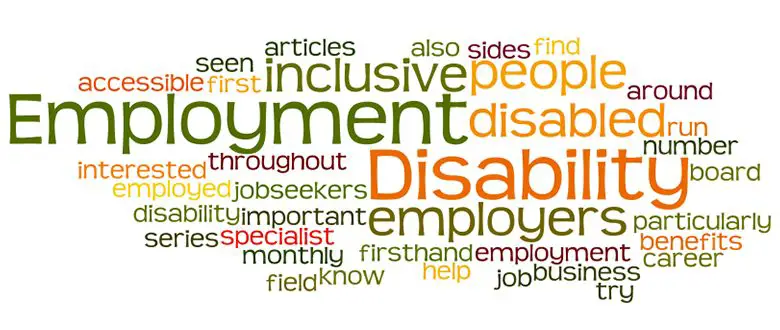
Disability and employment: creating the perfect CV
Jane Hatton, who manages Evenbreak, a not-for-profit job board run by disabled people for disabled people, publishes her bi-monthly article on the subject of employment. This month, writing the perfect CV.
#DHgurus
Having a powerful CV can make the difference between being rejected or being invited for interview, so it’s worth spending time on it to sell yourself as well as you can. Here, we go through each element of a CV in turn, but just two points to make before we start:
- Be honest in your CV. This doesn’t mean you have to tell them everything (for example, whether or not to mention your disability is entirely up to you), but does mean you can’t make things up to fill in gaps, for example. Just include the information that will sell you well.
- Each CV you write will need to be tailored exactly to the job you are applying for. This means your CV might change in terms of the skills you describe, or the emphasis you place on different experiences, depending on what the recruiter is looking for.
Your CV should be no more than two sides of A4, using a clear font (minimum point 10), and well laid-out, using bold headings and short statements or bullet points.
Contact information
At the top of your CV, just put your name, email address and telephone number (or if either of those are inappropriate ways to contact you, leave it off). No need to mention address, date of birth, marital status or any other irrelevant information.
Personal profile
Just a few short statements stating the specific qualities you have in relation to the requirements they have for this particular job. If the job advert states they are looking for someone with excellent communication and interpersonal skills and a great telephone manner, those are the three things you mention. If they need someone with attention to detail able to work on their own, then those are the qualities you mention. They will read this bit first, and if you don’t match what they are looking for, they may not read on.
Work history
This traditionally appears next in the CV, but if your work history isn’t the first thing you want them to know about you (maybe you have had a long period of unemployment, or there are a lot of gaps in your work history, or your work history is not relevant to the job you are applying for) this section can come after the section on skills.
List each job you have had (including unpaid work such as voluntary work or work experience), with the most recent first. Put the job title, employer and dates you worked there. Under each job, put what results you achieved while you were there. For example, “was awarded Employee of the Month for three months”, or “assisted colleagues on a project to improve the service”. For any gaps, rather than saying why there was a gap, put something like “Career Break” and add a description of anything you achieved during the break, such as learning a new skill, or doing voluntary work. If there was nothing, just leave blank.
Skills
This can appear before the Work History section if you feel it is more relevant to your application. List the skills specified in the job advert and put a short statement next to each one demonstrating how you have used that skill successfully. Some examples:
Customer care: Listening to customers, offering appropriate advice, and signposting them to further sources of information
Data analysis: Identifying errors in database and resolving them to ensure accuracy
Management: Managed a budget of £500k and a team of 10 in small charity
The skills you describe will change depending on the requirements of the job you are applying for. You can include skills developed in any capacity, including unpaid activities.
Qualifications and training
If you are a recent graduate, this section needs to appear further up the CV, however if you have lots of experience and skills but few formal qualifications, further down. List appropriate training; i.e. if you have O levels from 1976 and a degree from 2006, mention the degree but not the O levels. If GCSEs or A levels are recent, include them. If you have completed training that didn’t lead to a formal qualification, include it if it is relevant to the job you are applying for.
Additional information
Only add information that will support your application, for example, if you have won awards, done voluntary work, or been published in relevant journals. If you have unrelated hobbies, leave them out.
Mentioning disability
There is no legal obligation for you to mention any impairment, and you may choose not to do so. Where it might be worth mentioning is if:
- You require reasonable adjustments in the recruitment process (mention in the cover letter)
- Your impairment gives you added benefit to the employer (e.g. some employers actively pursue candidates on the Autistic Spectrum, or it may be a role working with people with similar impairments)
- The employer offers guaranteed interviews to disabled applicants who meet the minimum criteria
By Jane Hatton
Get in touch by messaging us on Facebook, tweeting us @DHorizons, emailing us at editor@disabilityhorizons.com or leaving your comments below.